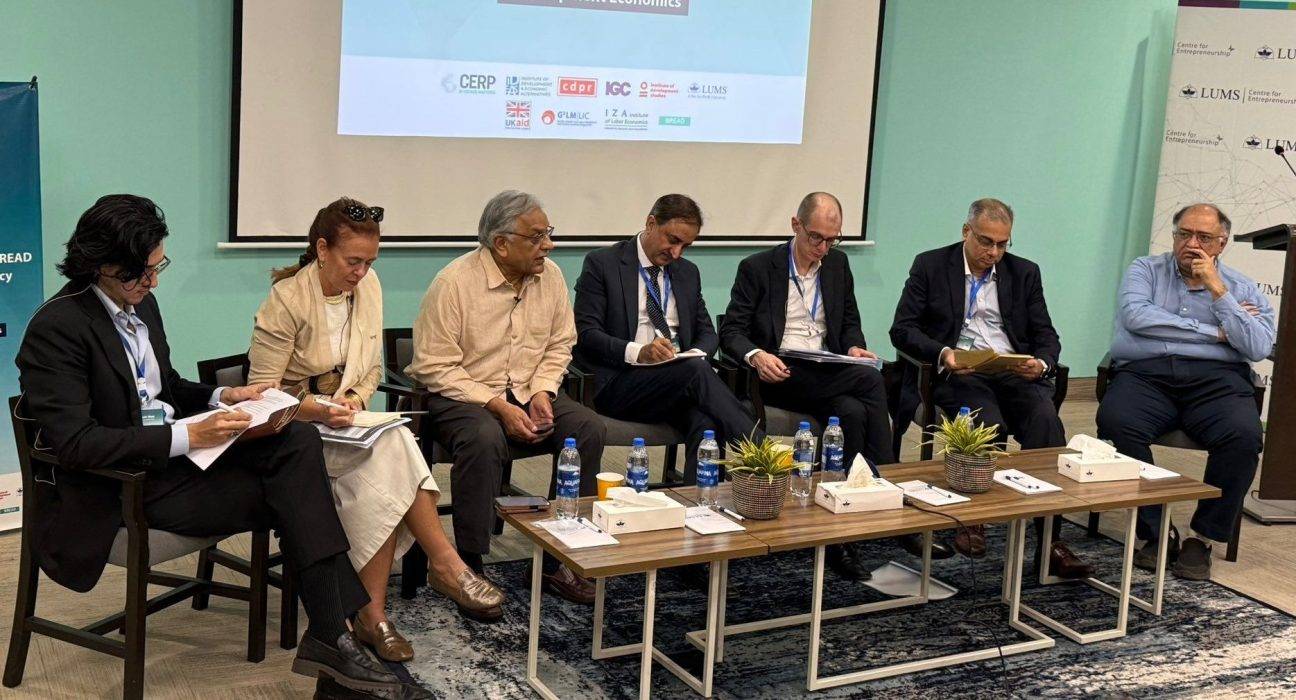Leading economists, policymakers, and development practitioners from across the world gathered at LUMS this week for the three-day G²LM|LIC/Path2Dev/BREAD Academic and Policy Conference on Development Economics. The event spotlighted pressing global challenges with a special focus on South Asia, offering evidence-based insights on climate change, energy, employment, taxation, and governance.
Climate and energy emerged as central themes, with new research highlighting how rising temperatures and prepaid electricity meters can limit access for low-income communities. Sessions on employment and human capital emphasized the role of information-sharing in boosting female participation in the workforce, while education and health were reaffirmed as cornerstones of inclusive growth. Flexible incentives in the public sector were presented as vital to improving service delivery, and researchers explored citizen support for progressive tax reform alongside the dynamics of sovereignty-contesting violence.
Jointly organized by G²LM|LIC, BREAD, IZA Institute of Labor Economics, the Chaudhry Nazar Muhammad Department of Economics at the Mushtaq Ahmad Gurmani School of Humanities and Social Sciences, the Mahbub ul Haq Research Centre at LUMS, IDS at the University of Sussex, IDEAS, IGC, CDPR, and CERP, the conference aimed to bridge rigorous academic research with practical policy solutions.
The program included a mentorship initiative designed to connect junior researchers, particularly from South Asia, with senior academics. Panels featured leading voices including Hamed Ateeq Sarwar (Member, IRS), Umme Laila Azhar (Chairperson, NCSW), and Ahmed Khan (CEO, PSDF), who discussed actionable strategies for addressing development challenges.
Reflecting on the importance of the gathering, Maroof Syed, President and CEO of CERP, stated, “By bringing together researchers, practitioners, and policymakers, the conference affirms each year that policy debates must respond to realities on the ground in Pakistan and beyond. There is a high level of intersectionality between inequality, governance, gender, health, and education, especially in the context of climate change. Unless we address them together and align budgets with these priorities, inclusive development will remain out of reach.”
The keynote address was delivered by Dr Imran Rasul, Professor at University College London (UCL), who emphasized the need for firm-focused rather than worker-focused approaches in designing social insurance systems. The Chaudhry Nazar Muhammad Distinguished Lecture was given by Dr Sheheryar Banuri, Associate Professor at the University of East Anglia (UEA), who used a behavioral economics lens to examine corruption and stressed the role of institutions, incentives, and communities in shaping outcomes.
Related: Cambridge and LUMS Unite to Redefine Teacher Education
The conference concluded with a resounding call for evidence-driven reforms in taxation, public service delivery, gender inclusion, and climate resilience, reaffirming a shared commitment to building economies that are not only stronger but also more inclusive and sustainable.



